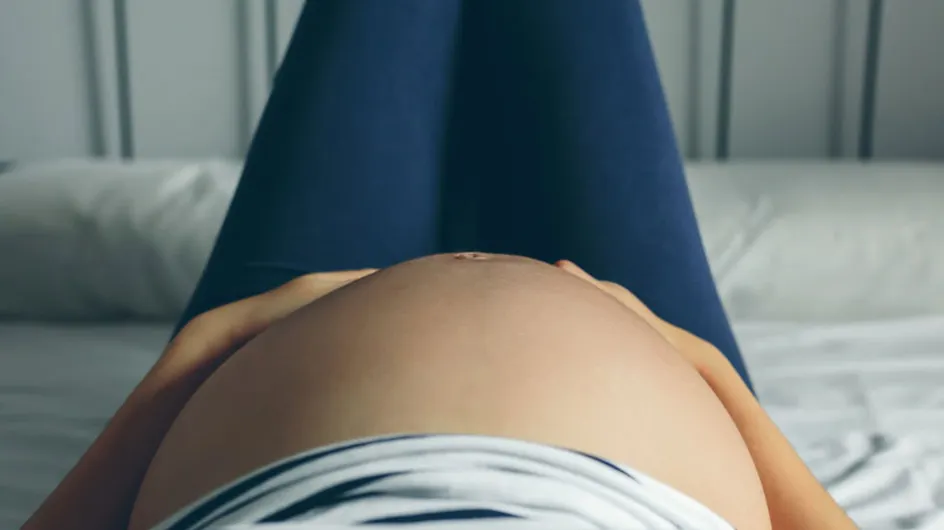Your body is really put to the test during pregnancy. You'll notice all sorts of aches and pains that you wouldn't normally get. You can even have some pre-labour contractions.
That's why some women can find it hard to tell if what they are feeling is the start of them giving birth, or just another one of those funny twinges.
Every woman's labour is different, so it's impossible to say exactly how you will feel, but there are some common early signs of labour that you can look out for.
We've rounded up some tell tale signs, from nausea to back ache and contractions, it really is the most magical time!
It's always best to be prepared so read on to equip yourself with the early signs of labour...
The Show
The show is when the plug of mucus that has been sealing your cervix comes away out of your vagina, it's a sign that your body is preparing for labour.
There's only a small amount of this sticky pink mucus - in fact some people don't even notice it - and it can come away in one blob or in several pieces. It will be blood stained, but there shouldn't be lots of blood. If you do start to lose lots of blood call the hospital or your midwife.
While the show can mean that labour is imminent, it can also mean that it won't happen for a few more days. Confusing, we know.
Nausea and Vomiting
When you start going into labour, midwives often say that it is fine to snack, and you might well need to, you could have a long stretch ahead of you. And you'll need that energy!However, you might not feel like eating because during this stage you can feel nauseous and even vomit. You might also experience some diarrhoea.
These feelings can make you feel a bit anxious and stressed, but if you're prepared for them and know that they are perfectly natural, you're much more likely to be at ease.
Drinking water and carbonated drinks can help to relieve these symptoms - hydration is key!
Needing the toilet
As well as getting an upset stomach, you might find that you feel the need to go to the toilet more. That's because your baby's head has moved and might now be pressing on your bowel.
Contractions can contribute to this too - as they get stronger you might find that you start to need the toilet more often - again, there's no need to worry as this is totally normal.
Energy and mood changes
Your mood can change a lot when labour is on its way. On the one hand, you might find yourself feeling very emotional or moody. You might also find that your sleep is disrupted and you can feel very tired.
But in between these periods you can also get sudden bursts of energy. Often during this time you will get a need to clean the house and prepare it for your baby. This is called nesting and is actually a pretty handy little gift from Mother Nature!
Back Ache
When you think of labour pains, you tend to think of contractions. But you can also get pains elsewhere, especially in your back.
Back pain tends to linger in between the contractions but might well happen throughout your labour.
It is more likely to happen when your baby is in certain positions, like back to back with you. The best thing to do to relieve this back pain is to get onto all fours. That decreases the pressure on your cervix and gives good counter pressure for your lower back.
Breaking Waters
Your waters break when the sack that your baby has been held in breaks and the amniotic fluid drains out through your vagina. You might notice a little trickle or it could be a big gush of water that you can't control.
Despite what many people think, your waters normally break when you are in labour, rather than at the start. If your waters do break before you go into labour, call your midwife or the hospital for advice because your baby won't be protected anymore and will be at risk of infection.
The amniotic fluid should be clear and a pale straw colour, it might have a little bit of blood in it. If it smells strange or if there's lots of blood, call the hospital.
Regular Contractions
A contraction is when your womb tightens and then relaxes. If you put your hand on your abdomen you can feel it getting harder and then as your muscles relax and the pain fades, it would get softer.
Contractions are the real sign that you're going into labour. You might have felt contractions during pregnancy, especially as your due date grew closer. These are called Braxton Hicks contractions.
When you start having regular, painful, strong contractions that last for more than 30 seconds and come about every five minutes, labour may have started. You should call your midwife or the hospital.











